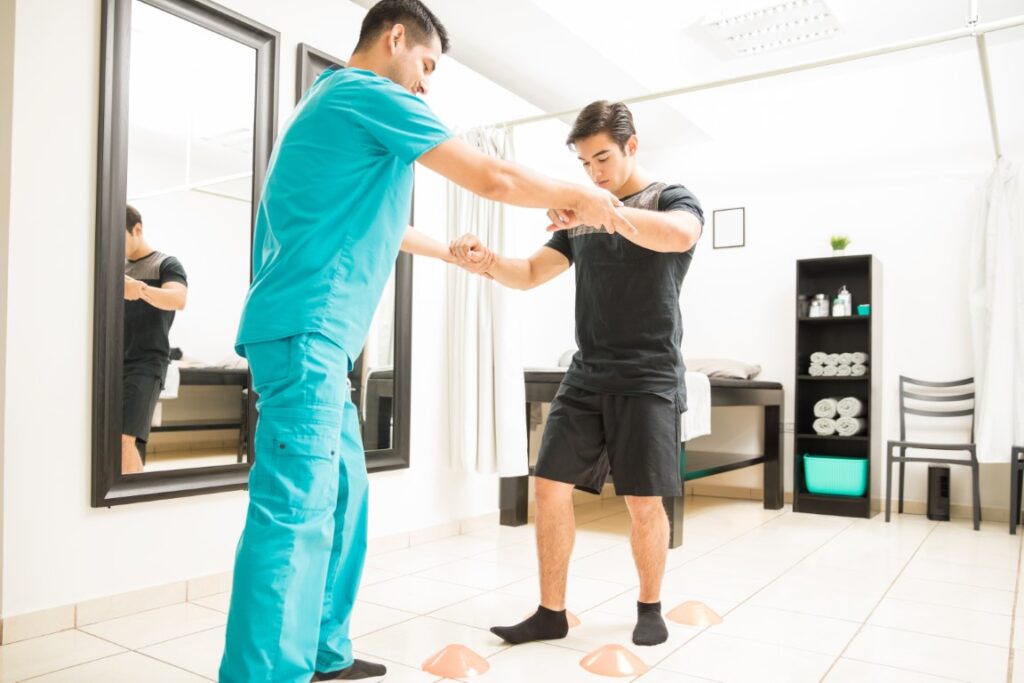
Neurological Rehabilitation:
Neurological diseases or injuries can cause a wide range of symptoms, including difficulty with movement, coordination, balance, and sensation. These symptoms can greatly impact a person’s ability to perform activities of daily living, such as dressing, grooming, bathing, and cooking. In some cases, patients may also experience cognitive deficits, such as memory loss, confusion, and difficulty with communication.
Physical therapy and occupational therapy are two types of rehabilitation that can help patients with neurological disorders or injuries. Physical therapy focuses on improving movement, strength, and function, while occupational therapy addresses the patient’s ability to perform daily activities. Both types of therapy are important for restoring the patient’s independence and quality of life.
Physical therapy for neurological disorders may include exercises to improve strength, balance, and coordination. For example, patients with Parkinson’s disease may benefit from exercises to improve their gait and balance, while those with multiple sclerosis may benefit from exercises to improve their muscle strength and endurance. Physical therapy may also involve the use of assistive devices, such as walkers, canes, or braces, to help the patient move more safely and independently.
A 2017 study by Front Public Health shows physical therapy has a significant influence on quality of life, independent living, and life expectancy for patients with neurological conditions.
Occupational therapy for neurological disorders focuses on helping patients perform activities of daily living, such as dressing, grooming, and cooking. Occupational therapists may work with patients to develop strategies for overcoming challenges related to their symptoms, such as using adaptive equipment or modifying their environment. For example, patients with hand tremors may benefit from using specialized utensils that are easier to grip, while those with visual impairments may benefit from using devices that magnify text or images.
In addition to improving physical function and independence, physical therapy and occupational therapy can also provide emotional support for patients. Coping with a neurological disorder can be challenging and overwhelming, and therapy can help patients develop coping strategies and find ways to stay motivated and engaged in their recovery.
At our clinic, our therapists are dedicated to providing the highest quality care for patients with neurological disorders. We use the latest evidence-based treatments and assistive technologies to help patients achieve their maximum functional potential. Our goal is to help patients regain their independence, improve their quality of life, and achieve their personal goals.
BOOK AN APPOINTMENTCall Today: 732-290-4920
